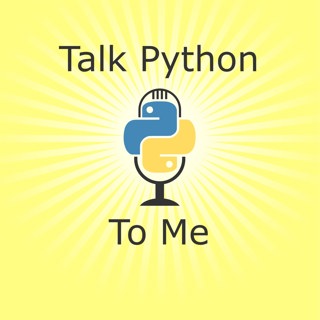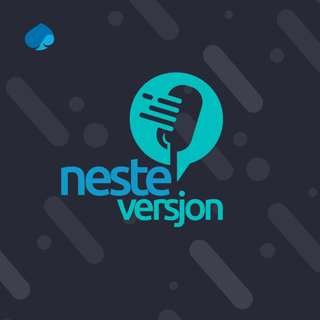
#423: Solving 10 different simulation problems with Python
Python is used for a wide variety of software projects. One area it's really gained a huge amount of momentum is in the computational space (including data science). On this episode we welcome back Allen Downey to dive into a particular slice of this space: simulation problems and Python in Physics and Engineering in general.
24 Jul 20231h 6min

#422: How data scientists use Python
Regardless of which side of Python, software developer or data scientist, you sit on, you surely know that data scientists and software devs seem to have different styles and priorities. But why? And what are the benefits as well as the pitfalls of this separation. That's the topic of conversation with our guest, Dr. Jodie Burchell, data science developer advocate at JetBrains.
7 Jul 20231h 2min

#421: Python at Netflix
When you think of Netflix (as a technology company), you probably imagine them as cloud innovators. They were one of the first companies to go all-in on a massive scale for cloud computing as well as throwing that pesky chaos monkey into the servers. But they have become a hive of amazing Python activity. From their CDN, demand predictions and failover, security, machine learning, executable notebooks and lots more, the Python at play is super interesting. On this episode, we have Zoran Simic and Amjith Ramanujam on the show to give us this rare inside look.
2 Jul 20231h 4min

#420: Database Consistency & Isolation for Python Devs
When you use a SQL database like Postgres, you have to understand the subtleties of isolation levels from "read committed" to "serializable." And distributed databases like MongoDB offer a range of consistency levels, from "eventually consistent" to "linearizable" and many options in between. Plus, it's easy enough to confuse "isolation" with "consistency!" We have A. Jesse Jiryu Davis from MongoDB back on the podcast to break it all down for us.
26 Jun 202356min

#419: Debugging Python in Production with PyStack
Here's the situation. You have a Python app that is locked or even has completely crashed and all you're left with is a core dump on the server. Now what? It's time for PyStack! You can capture a view of your app as if you've set a breakpoint and even view the callstack and locals across language calls (for example from Python to C++ and back). We have the maintainers, Pablo Galindo Salgado and Matt Wozniski, here to dive into PyStack. You'll definitely want to have this tool in your toolbox.
14 Jun 20231h 12min

#418: How To Keep A Secret in Python Apps
Think about the different APIs and databases your application works with. Every one of them requires either an API key or a database connection string that itself contains a password. How do you let your application access this sensitive information without storing it in source code or putting in other compromising locations? We have Glyph Lefkowitz on the show to share his security fable as well as just good advice for keeping secrets out of Python code.
2 Jun 20231h 7min

#417: Test-Driven Prompt Engineering for LLMs with Promptimize
Large language models and chat-based AIs are kind of mind blowing at the moment. Many of us are playing with them for working on code or just as a fun alternative to search. But others of us are building applications with AI at the core. And when doing that, the slightly unpredictable nature and probabilistic nature of LLMs make writing and testing Python code very tricky. Enter promptimize from Maxime Beauchemin and Preset. It's a framework for non- deterministic testing of LLMs inside our applications. Let's dive inside the AIs with Max.
30 Mai 20231h 13min

#416: Open Source Sports Analytics with PySport
If you're looking for fun data sets for learning, for teaching, maybe a conference talk, or even if you're just really into them, sports offers up a continuous stream of rich data that many people can relate to. Yet, accessing that data can be tricky. Sometimes it's locked away in obscure file formats. Other times, the data exists but without a clear API to access it. On this episode, we talk about PySport - something of an awesome list of a wide range of libraries (mostly but not all Python) for accessing a wide variety of sports data from the NFL, NBA, F1, and more. We have Koen Vossen, maintainer of PySport to talk through some of the more popular projects.
22 Mai 202357min





















